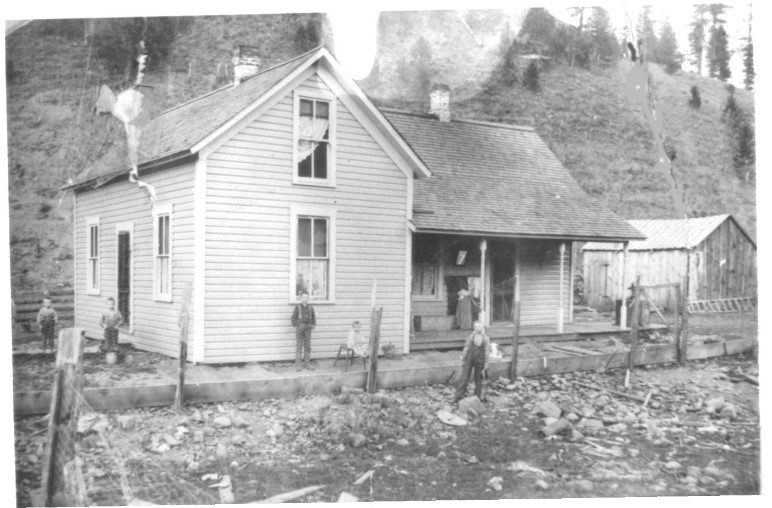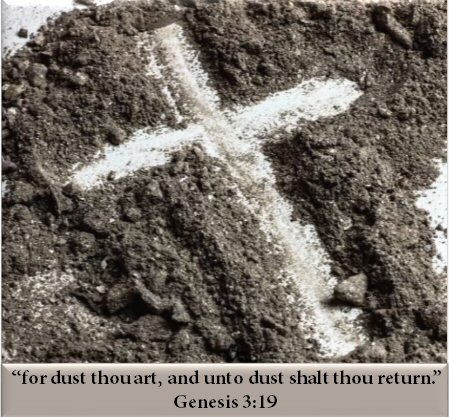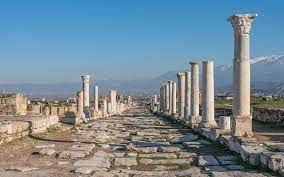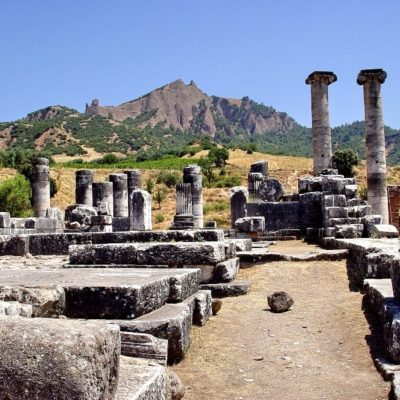Episcopal Church

The Episcopal Church is a Christian denomination that was part of the Anglican Communion which was formally organized in 1789 in Philadelphia. It descended from the Church of England in the early American Colonies.
The Episcopal Church is an independent in government and is bound by tradition of inheritance from the Church of England. Its ministry, doctrine, liturgy and traditions comes from the Church of England.
Episcopalians use the Nicene Creed and the Apostles Creed in their worship. These are used as the universal statement of their Christian faith. The church follows the ancient traditions and has added the Athanasian Creed among its statement of faith.
The Episcopal Church came into being as an independent denomination after the American Revolution. The government of the Episcopal Church is democratic. Groups of parishes form dioceses, which may bear city, state, or regional names.
The church consists of deacons, priests, and bishops. The Spiritual head is the Archbishop of Canterbury.
The Episcopal Church is a member of the National Council of Churches of Christ and of the World Council of Churches. It has joined with other Protestant denominations and non-Christian groups in an attempt to achieve a more unified Christian church and recommended the considerations should be based on the Holy Scriptures, the Apostles and Nicene Creeds, the sacraments of baptism and the Eucharist.
The Episcopal Church admitted women to the holy orders in the 1970. This brought about division in the church. The church ordained its first woman bishop in 1989.
History
The Episcopal Church was brought to America by the settlers of Jamestown, Virginia in 1607. The Episcopal Church spread to the other colonies. The strongest of the Churches were in New York and Pennsylvania. Most of the signers of the Declaration of Independence belonged to the Episcopal Church. When the American Revolution began in 1775 there were over 300 Church of England in the original thirteen colonies. Most of the clergy in New York favored the British because they had taken an oath of allegiance to the British crown when they were ordained. The Church suffered persecution and their membership declined. Many of the clergy were Loyalists and were forced to flee to Canada or back to England. When America gained political independence the ties that connected the Anglican congregation to the Church of England were severed.
In September 1785, the American colonies petitioned the archbishop of Canterbury to gain permission to consecrate American bishops for the Church. It was finally granted in February 4, 1787. The first general convention of the Episcopal Church was held in Philadelphia in 1789. That is when the Episcopal Church was formally organized as an independent denomination. The Episcopal Church stated they did not intend to leave any essential position of doctrine, worship or discipline from the mother church, the Church of England.
The Oxford movement began in England in 1833. It gave emphasis to the Roman Catholic heritage of the church and was influential in the Episcopal Church. The Oxford movement resulted in the formation of a High Church, favoring the Roman Catholic traditions and elaborate ceremonial rituals. The Low Church supported the Protestant evangelical traditions and had a minimum of ceremonial rituals. There was controversy within the Episcopal Church in the 1840 because many of the church members preferred the heritage of the Protestant influence instead of the Roman Catholic influence.
Ritualism grew out of the Oxford movement and emphasized the rituals, mainly the Holy Communion, and ceremony of the church. Ritualism in the 1870 further spread the controversies between the High and Low Episcopal congregations. Because of this movement there was a reorganization of the Episcopal Church in 1873 and an independent denomination was born, and called the Reformed Episcopal Church.
Belief
The Episcopal Church believes there is one living and true God who is everlasting, without body having infinite power, wisdom and goodness. He is the Maker, Preserver of all things visible and invisible. They believe there are three Persons of one substance in the form of the Father, the Son, and the Holy Ghost.
The Episcopal Church believes the Son is the Word of the Father and was begotten from everlasting of the Father, the very eternal God. They believe the Son is of one substance with the Father He took the nature of man in the womb of the blessed Virgin, of her substance. Two whole and perfect Natures, the Godhead and manhood, were joined together in one Person and can never be divided. He is one Christ, very God, and very Man. They believe He truly suffered, was crucified, died, and was buried, to reconcile His Father to mankind. The Episcopal Church believes He was to be a sacrifice for original guilt, and for the actual sins of men. They believe Christ died for us, and was buried, that He went down into Hell. They believe Christ truly rose again from the dead, took again His body, with flesh, bones, and all things pertaining to the perfection of the nature of man. They further believe Christ ascended into heaven and sits there until He returns to judge all men at the last day.
The Episcopal Church believes the Holy Ghost proceeds from the Father and the Son and is one substance, majesty and glory with the Father and the Son.
The Episcopal Church believes the Holy Scripture contains all things necessary to salvation. They believe what makes up the Holy Scripture are the canonical Books of the Old and New Testament. They include the First and Second Book of Esdra as being part of the canonical books. The Episcopal Church uses The Third, Fourth Books of Esdra, the Book of Tobias, the Book of Judith, the Book of Wisdom, Jesus the Son of Sirach, Baruch the Prophet, The Song of the Three Children, The Story of Susanna, Of Bel and the Dragon, the Prayer of Manasses, The First and Second Book of Maccabees are as examples of life and instruction however, it does not use them as doctrine they consider them as Canonical.
They believe the Old Testament and the New Testament offers everlasting life to mankind by Christ. They believe Christ is the only Mediator between God and man. The Episcopal Church believes Christ was without sin. They believe Christ came to be the Lamb without spot and sacrificed Himself to take away the sins of the world.
The Episcopal Church uses the Nicene Creed and the Apostles Creed in their worship. They believe they are to be received and believed. The Episcopal Church believes original sin is the fault of a corrupt nature of every man and not from the followings of Adam. They believe it is provoked of the offspring of Adam. They believe it is of the nature of man to be evil and lust away from the Spirit and deserves the wrath of God. The Episcopal Church believes there is no condemnation for those that believe and are baptized.
The Episcopal Church believes man does not the power to do good works that is pleasant and acceptable to God and it requires the grace of God by Christ. They believe they are justified by faith only. The Episcopal Church believes good works are the fruits of faith and follow after justification. They believe it cannot put away sins but are pleasing to God in Christ. The Episcopal Church believes works done before the grace of Christ, and the Inspiration of the Spirit are not pleasing to God.
The Episcopal Church believes a predestination of life is the everlasting purpose of God and it was before the foundation of the world were laid. They believe God had delivered from curse and damnation those whom God has chosen in Christ to bring everlasting salvation. They believe those who through the Grace of God obeys the calling are justified freely, and are made sons of God by adoption, and walk religiously in good works by the mercy of God and attain everlasting happiness.
The Episcopal Church believes the visible Church of Christ is a congregation of faithful men where the Word of God is preached, and the Sacraments are administered according to the ordinances of Christ. They believe the Church at Alexandria, Antioch, the Church of Jerusalem and the Church of Rome has erred in the manner of ceremonies, in the manner of living their lives and in their faith.
The Episcopal Church believes the church has power to decree rites and ceremonies, and in the decisions of faith. They do not believe the church has the right to do anything contrary to the written Word of God. They believe the Roman Doctrine concerning Purgatory, Pardons, Worship and Adoration, Images as Relics, and the Invocation of Saints are invented and are not grounded in Scripture. The Episcopal Church further believes speaking in tongues is plainly repugnant to the Word of God, believing it is the custom of a primitive church to have public prayer in the church, or to minister the Sacraments in a tongue not understood by the people of the congregation.
The Episcopal Church believes the Sacraments ordained of Christ are signs of the grace of God. The Episcopal Church celebrates two Sacraments that are considered ordained of Christ are Baptism and the Supper of the Lord. The Episcopal Church believes in five other The Sacraments that are not ordained of Christ but are to be used are Confirmation, Penance, Orders, Matrimony, and Extreme Unction. The Episcopal Church believes Baptism is a sign of regeneration and new birth and members are embedded into the church. They believe Baptism gives the promises of the forgiveness of sin, adoption, and grace of God. The Episcopal Church believes in the Baptism of young children.
The Episcopal Church believes the Supper of the Lord is a Sacrament of Redemption by Christ through His death. They believe the Supper of the Lord is also a sign of love between Christians. The Episcopal Church does not believe that transubstantiation, the changing of the substance of the Bread and Wine used in the Supper of the Lord, can be proven spiritually. The Episcopal Church believes the Body of Christ that is given, taken, and eaten, in the Supper is received and eaten in faith.
Cite Article Source
MLA Style Citation:
Holstein, Joanne “Episcopal Church:.” Becker Bible Studies Library Jan 2006.<https://guidedbiblestudies.com/?p=2674,>.
APA Style Citation:
Holstein, Joanne (2006, January) “Episcopal Church:.” Becker Bible Studies Library. Retrieved from https://guidedbiblestudies.com/?p=2674,.
Chicago Style Citation:
Holstein, Joanne (2006) “Episcopal Church:.” Becker Bible Studies Library (January), https://guidedbiblestudies.com/?p=2674, (accessed).


